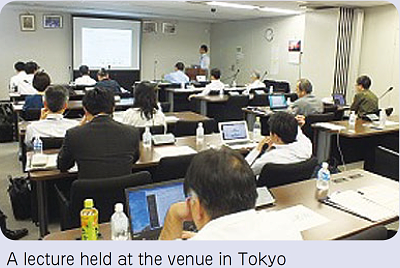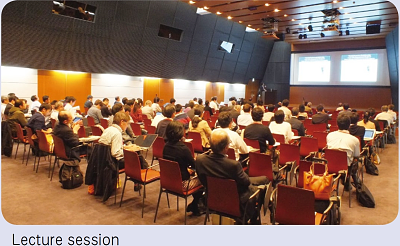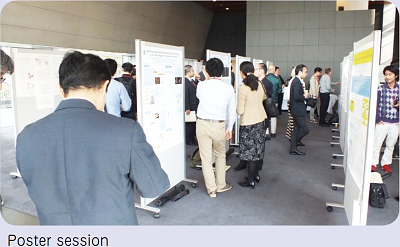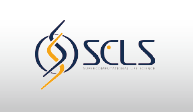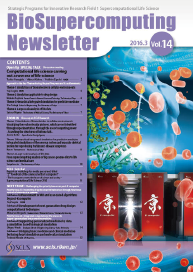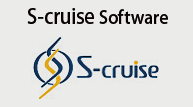The workshop for media personnel, "2nd Forefront of life sciences led by K computer!" was held on Wednesday, September 30, 2015. The purpose of this workshop was to widely inform press personnel of research achievements delivered by integrating this cutting edge supercomputer with life science, as well as of new science dreams arising out of such achievements. Four representatives tackling research subjects under Strategic Programs for Innovative Research Field 1 Supercomputational Life Science (SCLS), and two representatives tackling priority issues for the post-K computer, delivered lectures from the Tokyo Liaison Office of RIKEN and RIKEN Advanced Institute for Computational Science (via teleconference).
Six lecturers gave stimulating presentation of the research objectives, the achievements exclusively attained by the K computer, and the future application and evolution in industrial areas under the four research subjects: "Hierarchical integrated simulation for predictive medicine," "Analysis of the molecular dynamics of proteins and nucleic acids in cellular environments," "Innovative drug development enabled by the supercomputer" and "Large-scale analysis of life data," peppered with their own future initiatives and dreams. Also covered were the future prospects for the potential breakthrough achievements soon to be witnessed in the field of life sciences thanks to the projects of the post-K, which is expected to succeed the K computer, under the titles, "Integrated computational life science for individualization and preventive medicine" and "Drug development innovation enabled by the post-K."
According to the results of the questionnaire survey conducted afterward, what impressed the participants were the research activities directed at understanding the diversity of abnormalities in cancer, the results of ATL,s large-scale analysis, and the cranial nerve system and musculo-skeletal system, indicating their wide-ranging interests in diverse research fields. The workshop sessions were held in Tokyo and Kobe in the presence of a number of press personnel. We appreciate their attendance and strong interest. For a summary of the lectures and non-classified presentation documents, please visit the website of SCLS (http://www.scls.riken.jp/information/material.html).
